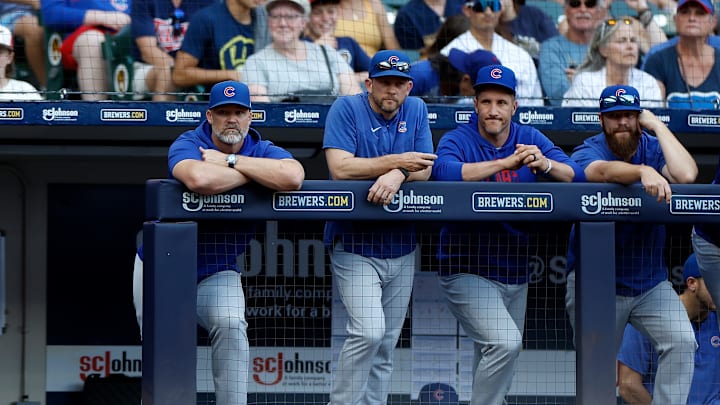On Sept. 6, the Chicago Cubs completed a sweep of the San Francisco Giants with an easy 8-2 victory, giving them 14 wins in 20 games.
With 22 games remaining in their season, the Cubs were 76-64 and sat just 1.5 games behind the Milwaukee Brewers in the National League Central.
While also just 1.5 games back of the Philadelphia Phillies for the top spot in the NL Wild Card standings, David Ross & Co. were sitting pretty as the No. 5 seed as they were 3.5 games clear of the Miami Marlins and four full games ahead of the Arizona Diamondbacks.
But that was as good as it would get for the North Siders.
Over those final 22 games, the Cubs won just seven of them and were officially eliminated from MLB postseason contention on the penultimate day of the regular season.
Chicago ultimately finished nine games behind the Brewers, seven behind the Phillies, 1.5 behind the Marlins, and one behind the Diamondbacks. Arizona took six of seven from the Cubs during Chicago's September swoon.
The Chicago Cubs have been eliminated from playoff contention pic.twitter.com/afvOB9BOBk
— Talkin’ Baseball (@TalkinBaseball_) October 1, 2023
Now, the easy person to blame here is Ross. But that seems a bit too simple, don't you think? Sure, the World Series hero made plenty of mistakes, perhaps playing a few too many veterans when his young players were getting the job done.
But, again, he's an easy scapegoat, which comes with the job. So, let's dig a little deeper and pinpoint a few players who contributed to the Cubs' collapse.
Cubs who should take the fall for the collapse: Christopher Morel
On July 31, Christopher Morel had a solid slash line of .281/.344/.541.
But just as the Cubs did as a team, Morel went cold down the stretch. Only his cold streak lasted longer.
In August, the 24-year-old slashed .149/.222/.324. He was a bit better in September -- but not by much -- with a line of .228/.299/.582.
The only saving grace was the fact that Morel hit 10 home runs over the final two months. But six of those came after the aforementioned win on September 6, which, of course, is when Chicago's slide began. So those dingers didn't mean much.
As Morel was the Cubs' designated hitter in many games the last two months, his job was to provide some offense, and he simply didn't get it done.
